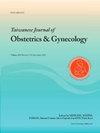Association between gestation weight gain and postpartum poor sleep quality in postpartum women with weight retention
IF 2.2
4区 医学
Q2 OBSTETRICS & GYNECOLOGY
引用次数: 0
Abstract
Objective
Gestational weight gain (GWG) and sleep quality may cause postpartum weight retention (PPWR).
Materials and methods
This was a cross-sectional study conducted from January to October 2022. A total of 282 postpartum women were recruited at 6 months postpartum, at which point postpartum weight was measured in our obstetrics and gynecology clinic. We classified participants into the two categories of excessive PPWR (≥5 kg) at 6 months postpartum or those without it. GWG was obtained from maternal health records. Weight gain during pregnancy was described as “insufficient” if below the Institute of Medicine recommendations (2009), “adequate” if within the recommended range, and “excessive” if above the recommendation. The Pittsburgh Sleep Quality Index was used to assess sleep during the previous 7 days.
Results
Participants’ mean age was 36.1 ± 5.2 years. Poor sleep quality (OR: 10.9; 95 % CI: 4.04–29.49) was associated with excessive PPWR. Women with insufficient GWG (OR: 0.34; 95 % CI: 0.17–0.65) were less likely to reach substantial PPWR (OR: 0.51; 95 % CI: 0.26–0.98), while those with excessive GWG were more likely to do so (OR: 7.25; 95 % CI: 2.66–19.75).
Conclusion
Health-care providers should recognize that encouraging appropriate GWG and the screening for sleep quality of postpartum women may reduce the incidence of substantial PPWR and thus reduce obesity rates in the early postpartum period.
产后体重潴留妇女妊娠期体重增加与产后睡眠质量差的关系
目的妊娠期体重增加(GWG)和睡眠质量可能导致产后体重潴留(PPWR)。材料与方法本研究为横断面研究,研究时间为2022年1 - 10月。在产后6个月共招募282名产后妇女,在我们的妇产科诊所测量产后体重。我们将参与者分为产后6个月PPWR超标(≥5 kg)和无PPWR超标两类。GWG是从产妇保健记录中获得的。如果怀孕期间体重增加低于医学研究所的建议(2009年),则被描述为“不足”,如果在建议范围内,则被描述为“适当”,如果超过建议范围,则被描述为“过度”。匹兹堡睡眠质量指数用于评估前7天的睡眠。结果患者平均年龄36.1±5.2岁。睡眠质量差(OR: 10.9;95% CI: 4.04-29.49)与PPWR过度相关。GWG不足的女性(OR: 0.34;95% CI: 0.17-0.65)不太可能达到实质性的PPWR (OR: 0.51;95% CI: 0.26-0.98),而GWG过高的患者更有可能这样做(OR: 7.25;95% ci: 2.66-19.75)。结论卫生保健提供者应认识到,鼓励产后妇女适当的GWG和睡眠质量筛查可减少大量PPWR的发生率,从而降低产后早期的肥胖率。
本文章由计算机程序翻译,如有差异,请以英文原文为准。
求助全文
约1分钟内获得全文
求助全文
来源期刊

Taiwanese Journal of Obstetrics & Gynecology
OBSTETRICS & GYNECOLOGY-
CiteScore
3.60
自引率
23.80%
发文量
207
审稿时长
4-8 weeks
期刊介绍:
Taiwanese Journal of Obstetrics and Gynecology is a peer-reviewed journal and open access publishing editorials, reviews, original articles, short communications, case reports, research letters, correspondence and letters to the editor in the field of obstetrics and gynecology.
The aims of the journal are to:
1.Publish cutting-edge, innovative and topical research that addresses screening, diagnosis, management and care in women''s health
2.Deliver evidence-based information
3.Promote the sharing of clinical experience
4.Address women-related health promotion
The journal provides comprehensive coverage of topics in obstetrics & gynecology and women''s health including maternal-fetal medicine, reproductive endocrinology/infertility, and gynecologic oncology. Taiwan Association of Obstetrics and Gynecology.
 求助内容:
求助内容: 应助结果提醒方式:
应助结果提醒方式:


